REM sleep is prioritized by the body because a heightened wave of brain activity occurs during REM sleep. The most active parts of the brain during this sleep stage are those that facilitate memory and that is why REM cycles serve a vital function in achieving healthy and refreshing sleep.
What Is REM Sleep?
Rapid eye movement (REM) sleep is one of the four stages that the brain goes through during the sleep cycle. This period of the sleep cycle usually takes place about 90 minutes after a person first falls asleep. It is marked by a number of physiological changes that include muscle relaxation, eye movement, faster respiration, and increased brain activity.1
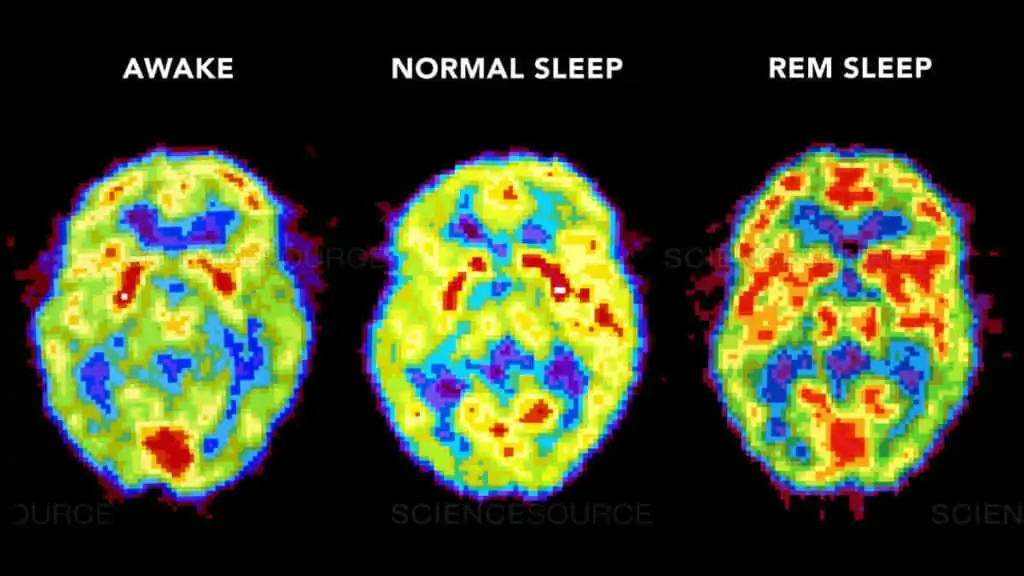
Source: sciencesource.com)
Signs Of REM Sleep
The brain and body go through a number of changes that are characteristic of this stage of sleep. Some key signs of REM sleep include:
- Body temperature changes
- Body twitching, particularly in the face, arms, and legs
- Increased blood pressure
- Increased brain activity that is similar to awake states
- Increased heart rate
- Increased oxygen use by the brain
- Rapid eye movements
- Rapid, irregular breathing
- Sexual arousal
Most people also experience a state of temporary paralysis known as atonia.
Related: What Your Sleeping Position Reveals About Your Personality
Impact Of REM Sleep
This sleep stage plays an important role in brain development as well as other functions including mood, dreaming, and memory.
1. Dreams
Dreams happen during the rapid eye movement (REM) stage of sleep. In a typical night, you dream for a total of two hours, broken up by the sleep cycle.2
Researchers do not fully understand the exact reasons why we sleep. They do know that newborns dream and that depriving rats of REM sleep greatly shortens their lives. Other mammals and birds also have REM sleep stages, but cold-blooded animals such as turtles, lizards, and fish do not.
Dreams can take place during any of the stages of sleep, but those that occur during REM sleep tend to be the most frequent and vivid.3
Related: 25 Common Dreams and Their Meanings
2. Brain Development
Research suggests that Rapid Eye Movement sleep serves an important role in the development of the central nervous system (CNS) during infancy.4 The high activity levels in the brain during this stage of sleep may play a role in developing and strengthening neural connections.
Related: Mental Health: The 10 Types of Sleep Disorders
3. Memory
Dreams may be one way that the brain consolidates memories. The dream time could be a period when the brain can reorganize and review the day’s events and connect new experiences to older ones. Because the body is shut down, the brain can do this without additional input coming in or risking the body “acting out” the day’s memories.
Some researchers believe that dreams are more like a background “noise” that is interpreted and organized. This activation-synthesis theory suggests that dreams are merely the brain’s attempt to make sense of random signals occurring during sleep.5
Some people have more control over their dreams than others. For these people, the last thoughts before going to bed may influence the content of a dream.
Challenges
REM sleep plays an important role in a number of functions, including learning and memory. Interruptions to REM sleep can sometimes result in problems. As a result, the lack of REM sleep is linked to several health concerns, including the following.
1. Increased Weight
Reduced REM sleep is associated with changes in leptin levels and may be associated with increased appetite and weight.6
Related: 13 Terrifying Health Effects of Sleep Deprivation
2. Memory Consolidation
The pons also sends signals to the cerebral cortex by way of the thalamus (which is a filter and relay for sensory information and motor control functions deep in the brain). The cerebral cortex is the part of the brain involved with processing information (learning, thinking, and organizing).
The areas of the brain that are “turned on” during REM sleep seem to help learning and memory. Infants spend almost 50% of their sleep time in REM sleep (compared to 20% for adults), which may be explained by the tremendous amount of learning in infancy.7
If people are taught various skills and then deprived of REM sleep, they often cannot remember what they were taught.
3. Movement
REM sleep usually begins after a period of deep sleep known as stage 3 sleep. An area of the brain called the pons—where signals for this sleep stage originate—shuts off signals to the spinal cord. That causes the body to be immobile during REM sleep.
Related: How Sleeping on Your Left Side Affects Your Health
When the pons doesn’t shut down the spinal cord’s signals, people will act out their dreams. This can be dangerous because acting out dreams without input from the senses can lead to accidents and physical harm such as running into walls and falling downstairs. This condition is rare and different from more common sleepwalking and is known as REM sleep behavior disorder.8
Tips For Supporting Healthy REM Sleep
There are things that you can do to make the most of this sleep stage each night.
1. Follow a Sleep Schedule
Go to bed at the same time each night and wake at the same time each morning. Following a sleep schedule can help maximize the amount of quality sleep, including REM sleep, that you get each night.
Related: 10 Things Most Successful People Do Right Before Bed
2. Watch Your Alcohol Intake
Keep your alcohol intake light before going to bed. Research has found that even moderate alcohol intake in the evening can interfere with REM sleep.9 Light alcohol intake doesn’t seem to have the same impact, but moderate to heavy consumption delayed the onset of this sleep stage and led to fewer REM sleep phases during the night.
3. Remember Your Dreams
You can develop your ability to remember your dreams by keeping a journal near your bed and writing down everything you can about your dreams when you first wake up. After a few weeks, your ability to remember your dreams will improve.
Some people claim that they have lucid dreams, which are dreams in which they can participate and change the dream as it develops. Lucid dreaming can be triggered through a number of techniques, though little research has been done on it.10
Article sources:
- Cleveland Clinic. Sleep basics. Updated July 20, 2012.
- The National Sleep Foundation. How often do you dream?
- National Institute of Neurological Disorders and Stroke. Brain Basics: Understanding Sleep. Updated August 13, 2019.
- Dumoulin bridi MC, Aton SJ, Seibt J, Renouard L, Coleman T, Frank MG. Rapid eye movement sleep promotes cortical plasticity in the developing brain. Sci Adv. 2015;1(6):e1500105. doi:10.1126/sciadv.1500105
- Mutz J, Javadi AH. Exploring the neural correlates of dream phenomenology and altered states of consciousness during sleep. Neurosci Conscious. 2017;2017(1):nix009. doi:10.1093/nc/nix009
- Olson CA, Hamilton NA, Somers VK. Percentage of REM sleep is associated with overnight change in leptin. J Sleep Res. 2016;25(4):419-425. doi:10.1111/jsr.12394
- National Sleep Foundation. How your baby’s sleep cycle differs from your own.
- Boeve BF. REM sleep behavior disorder: Updated review of the core features, the REM sleep behavior disorder-neurodegenerative disease association, evolving concepts, controversies, and future directions. Ann N Y Acad Sci. 2010;1184:15–54. doi:10.1111/j.1749-6632.2009.05115.x
- Ebrahim IO, Shapiro CM, Williams AJ, Fenwick PB. Alcohol and sleep I: Effects on normal sleep. Alcohol Clin Exp Res. 2013;37(4):539-49. doi:10.1111/acer.12006
- Voss U, Holzmann R, Tuin I, Hobson JA. Lucid dreaming: a state of consciousness with features of both waking and non-lucid dreaming. Sleep. 2009;32(9):1191–1200. doi:10.1093/sleep/32.9.1191
Written By:Mark Stibich, PhD Originally Appeared On:Very Well Mind Republished with permission.
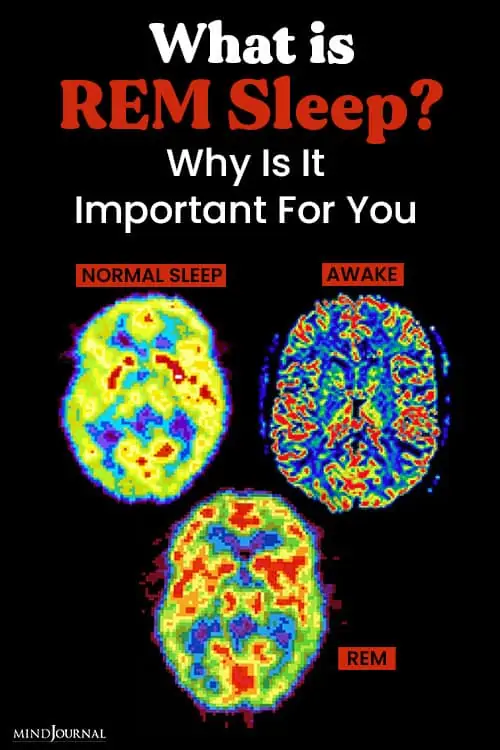
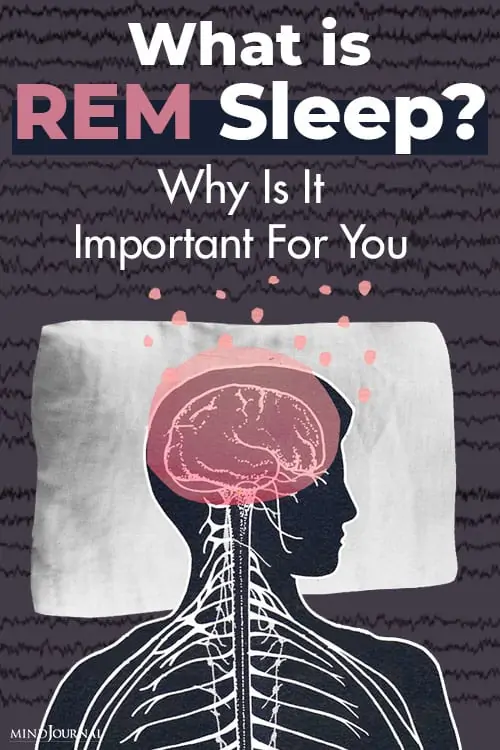
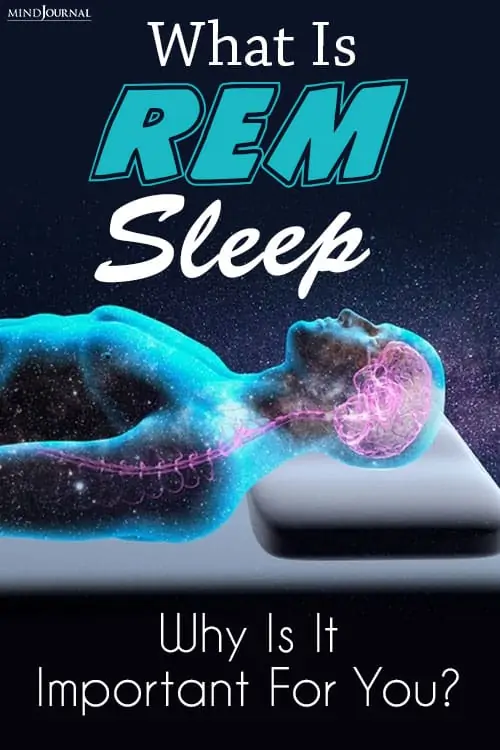
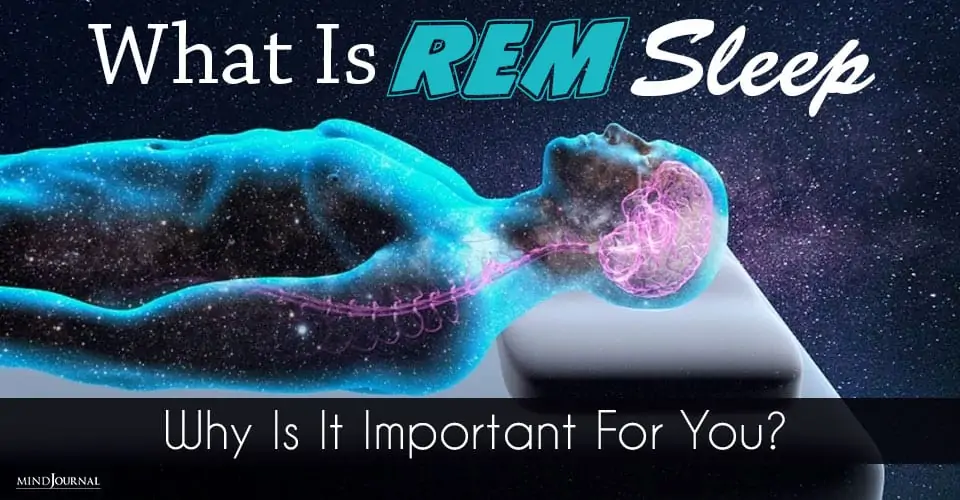


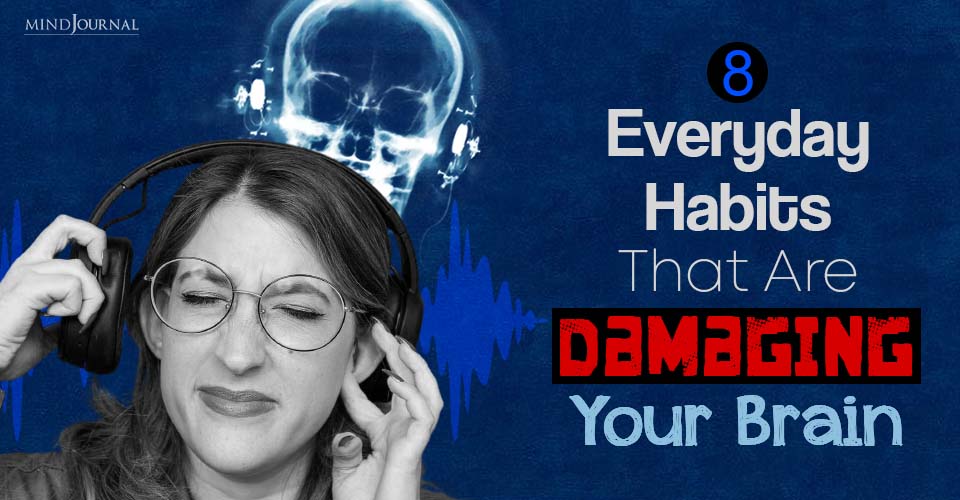




Leave a Reply
You must be logged in to post a comment.